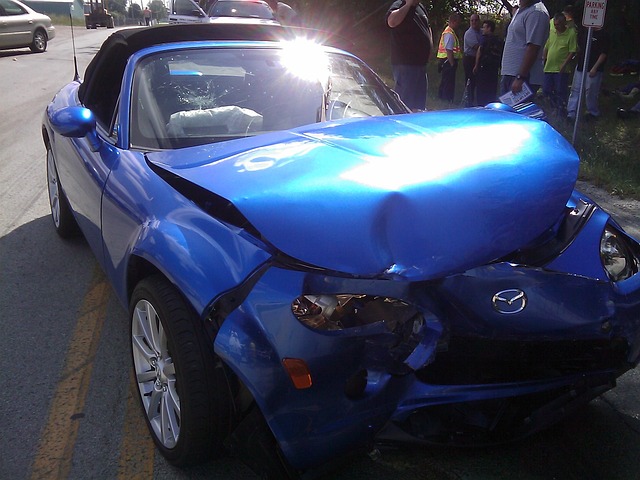Being involved in a car accident can be a stressful and life-changing experience. Whether you are dealing with physical injuries, emotional trauma, or financial burdens, handling a car accident case properly is crucial to securing fair compensation and ensuring your rights are protected. However, even minor missteps during the process can significantly impact the outcome of your claim. Below, we’ll explore in greater detail the eight most costly mistakes to avoid when evaluating and pursuing a car accident case.
1. Admitting Fault at the Scene
After a car accident, it’s natural to feel shaken or overwhelmed. Many people instinctively apologize or make comments such as, “I didn’t see you,” or “I should have been more careful.” While these statements may be polite or reflexive, they can be interpreted as admissions of fault.
Admitting fault—whether directly or indirectly—can undermine your case before it even begins. Even if you think you were partly to blame, avoid making any statements about responsibility. Liability is a complex determination made after a thorough investigation of the evidence. Law enforcement officers, insurance companies, and legal teams will analyze factors such as traffic laws, road conditions, and witness statements to assign fault.
Instead of speculating about fault, focus on documenting the scene and ensuring everyone’s safety. Cooperate with law enforcement, but stick to the facts when giving your statement. Let the investigators determine liability.
2. Failing to Gather Evidence
Evidence is the backbone of any car accident claim. Without sufficient evidence, proving liability and damages can become nearly impossible. Many victims fail to gather enough information at the scene, either because they are overwhelmed or because they assume someone else will handle it.
Here’s what you should do immediately after the accident:
- Take Photos and Videos: Use your smartphone to capture the accident scene from multiple angles. Photograph vehicle damage, skid marks, traffic signals, road conditions, and any visible injuries.
- Collect Witness Information: Eyewitness accounts can provide critical support for your case. Ask for names, phone numbers, and email addresses from anyone who saw the accident.
- Secure a Police Report: A police report can serve as an unbiased third-party account of the accident. Ensure the responding officer includes your statement and other relevant details.
- Document Everything: Write down your version of events as soon as possible. Include details such as the time, weather conditions, and any unusual factors (e.g., a distracted driver or a malfunctioning traffic light).
Even if you believe your injuries or damages are minor, collecting this evidence ensures you are prepared if complications arise later.
3. Neglecting Medical Attention
After a car accident, seeking medical attention is one of the most important steps you can take—for both your health and your case. Many injuries, such as whiplash, concussions, or internal bleeding, may not show symptoms immediately. Failing to see a doctor promptly can not only jeopardize your health but also give insurance companies grounds to argue that your injuries were not caused by the accident or were not serious enough to warrant compensation.
Here’s how to handle medical care after an accident:
- Visit a Doctor Immediately: Even if you feel fine, schedule a medical evaluation. Inform the doctor about the accident and any symptoms you’re experiencing.
- Follow the Treatment Plan: Adhere to your doctor’s recommendations, whether it involves physical therapy, medication, or follow-up appointments.
- Keep Detailed Medical Records: Document all medical visits, diagnoses, treatments, and expenses. These records will be essential in calculating damages and proving the extent of your injuries.
Neglecting your health not only endangers your well-being but also weakens your ability to claim compensation for medical expenses and pain and suffering.
4. Providing Recorded Statements Without Legal Counsel
Insurance adjusters often contact accident victims soon after the incident to obtain a recorded statement. They may frame this as a routine step in the claims process, but their primary goal is to minimize the insurer’s liability.
Here’s why this can be a costly mistake:
- Unintentional Errors: You may inadvertently say something that contradicts other evidence or downplays the severity of your injuries.
- Manipulative Tactics: Adjusters are trained to ask leading questions designed to elicit responses that weaken your claim.
- Waiving Future Claims: In some cases, providing a recorded statement without understanding your full medical prognosis or the extent of your damages can lock you into a less favorable outcome.
To protect yourself, decline to provide a recorded statement until you have consulted an attorney. Your lawyer can handle communications with the insurance company to ensure your rights are safeguarded.

5. Accepting Early Settlement Offers
After a car accident, you may be eager to put the ordeal behind you, especially if you are facing mounting medical bills or repair costs. Insurance companies know this and often offer quick settlements that are significantly lower than what you may deserve.
Accepting an early settlement without understanding the full scope of your damages can leave you financially vulnerable. Consider the following:
- Future Medical Expenses: Some injuries require ongoing treatment, surgery, or rehabilitation. Accepting a settlement too early may leave you without funds to cover these future costs.
- Lost Wages: If your injuries prevent you from working, you may be entitled to compensation for lost income—both past and future.
- Non-Economic Damages: Pain, suffering, emotional distress, and loss of enjoyment of life are often undervalued in early settlement offers.
Before accepting any settlement, consult with an attorney who can evaluate the offer and negotiate for fair compensation based on the full extent of your damages.
6. Misunderstanding Insurance Coverage
Many accident victims assume their insurance will cover all their expenses, only to discover significant gaps in their coverage. Understanding your policy—and that of the at-fault driver—is crucial for maximizing your compensation.
Key factors to consider include:
- Coverage Limits: Every policy has a maximum payout amount. If your damages exceed the at-fault driver’s coverage, you may need to pursue compensation through other means, such as underinsured motorist coverage.
- Exclusions and Restrictions: Some policies exclude certain types of damages, such as pain and suffering, or require you to meet specific conditions (e.g., seeing an approved doctor).
- Stacking Policies: In some cases, you may be able to combine multiple policies (e.g., personal health insurance, employer benefits) to cover your expenses.
Review your policy carefully and consult with your insurer or attorney to clarify any uncertainties.
7. Delaying the Claims Process
Time is of the essence when filing a car accident claim. Waiting too long can result in several negative consequences, including:
- Statute of Limitations: Every state has a legal deadline for filing personal injury claims. Missing this deadline can result in the forfeiture of your right to compensation.
- Lost Evidence: Over time, physical evidence may be lost or destroyed, and witnesses’ memories may fade.
- Perceived Lack of Seriousness: Delaying your claim can signal to insurers that your injuries or damages are not severe, reducing their willingness to settle.
- To avoid these issues, initiate the claims process as soon as possible. Prompt action shows that you are serious about pursuing your case and helps preserve critical evidence.
8. Overlooking Legal Representation
Navigating the legal and insurance aspects of a car accident case can be overwhelming, especially when dealing with injuries and financial stress. Many victims attempt to handle their cases alone, only to encounter obstacles that a qualified attorney could have helped them overcome.
Here’s why hiring an experienced attorney is invaluable:
- Legal Expertise: Attorneys understand personal injury laws, insurance policies, and court procedures. They can build a strong case, gather evidence, and counter any arguments from the opposing side.
- Maximized Compensation: Lawyers know how to calculate damages, including non-economic losses like pain and suffering, to ensure you receive fair compensation.
- Negotiation Skills: Insurance companies are more likely to take your claim seriously when you have legal representation. An attorney can negotiate on your behalf and advocate for your best interests.
Hiring a lawyer early in the process ensures you have the guidance and support you need to navigate the complexities of your case.
Conclusion
Evaluating a car accident case involves a series of critical decisions that can impact the outcome of your claim. By avoiding these eight costly mistakes—admitting fault, neglecting evidence, delaying medical attention, and more—you can strengthen your position and improve your chances of securing fair compensation.
Remember, each case is unique, and seeking professional legal advice is often the best way to protect your rights and achieve a favorable resolution. Take the necessary steps to safeguard your future and recover from the aftermath of the accident with confidence.
Secure Your Recovery After a Car Accident in Phoenix, AZ with Phoenix Injury Attorneys
At Phoenix Injury Attorneys, we understand the overwhelming stress that a car accident can bring to your life. Our experienced and compassionate legal team, based in Arizona, is dedicated to providing not only skilled legal representation but also genuine care and empathy. Specializing in car accident claim assistance in Phoenix and the surrounding areas, we recognize that navigating the aftermath of an accident involves more than just legal proceedings—it’s about helping you recover and regain stability. By choosing us, you’re not just hiring legal experts; you’re gaining a team of advocates deeply committed to your well-being and financial recovery.
Led by Khalil Chuck Saigh, our collaborative approach ensures that every client benefits from our collective expertise, making us a strong force in pursuing your rights and fair compensation. We are committed to providing personalized attention and tirelessly working to achieve the best possible outcomes for our clients in Phoenix and throughout Arizona. Trust Phoenix Injury Attorneys to handle your car accident claim with the utmost care and professionalism, so you can focus on healing and moving forward with confidence. Reach out to us today to learn more about how we can assist you through this challenging time.
Disclaimer
The materials available on this website are for informational and entertainment purposes only and not to provide legal advice. You should contact your attorney to obtain advice concerning any particular issue or problem. You should not act or refrain from acting based on any content included in this site without seeking legal or other professional advice. The information presented on this website may not reflect the most current plumbing developments. No action should be taken in reliance on the information contained on this website and we disclaim all liability concerning actions taken or not taken based on any or all of the contents of this site to the fullest extent permitted by law.


